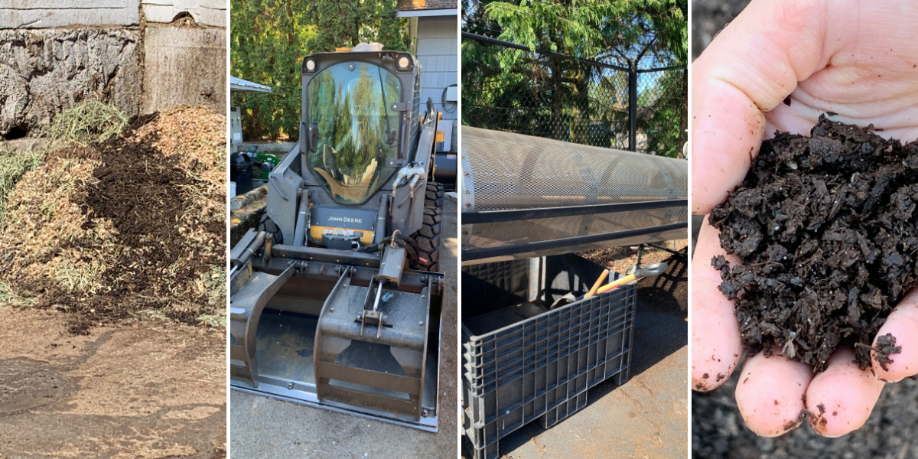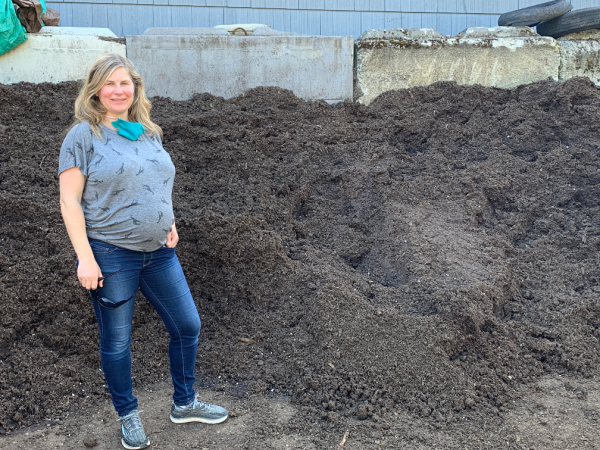|
The Dirt on Compostable Diapers
by Melanie Carr, MS, Ecoengineer Consultant for Diaper Stork In a typical baby’s lifetime, she’ll go through 6,000 to 8,000 diaper changes by the time she’s potty trained. If the baby’s caregivers are using disposable diapers, those 6,000 to 8,000 diapers end up in a landfill, where it takes 500 to 800 years to biodegrade. How can parents reduce their ecological impact? Cloth diapering and Elimination Communication (aka infant potty training) are two great ways. Another option that’s relatively new when it comes to diapering is compostable diapers. Made from mostly non-plastic materials, these bamboo and biodegradable diapers decompose in approximately 2–3 months. The biggest challenge with composting diapers is that very few composting locations in North America accept these diapers. Why? They must be composted in a commercial setting regulated for biohazard waste. They cannot go in your city compost bin, or even in your backyard bin. Unfortunately, Washington state currently does not have one of these locations, so any disposable diaper, compostable or not, must be put in the landfill. Compostable diapers are not disposable diapers that are composted. Rather, compostable diapers are made from non-plastic materials that will degrade over time during the composting process. Some diapers have plastic materials that are screened out after composting. Multiple brands offer 90%-plus compostable diapers, including the highly rated and most biodegradable products from the following brands:
Where Can I Compost Diapers?
Several places take compostable diapers in a service operation:
Diaper Stork is eager to join this list and provide a diaper composting option for the Greater Seattle area. However, no public or private composting facilities in Washington state accept compostable diapers. There are lots of composting processes that deal with vegetation composting, but not many that deal with human and animal waste (biosolids). Regulations and permitting pose the biggest barrier to starting a biosolids compost system. Diaper Stork Owner Carrie Pollak, pregnant with baby #2, explores composting facilities. Diaper Stork is currently exploring several options for processing compostable diapers in Washington—from partnering with existing sites to developing our own facility. With more than 475,000 tons of diapers going into our landfills per year in Seattle alone, we believe that transitioning to a compostable diaper coupled with a regional logistics solution is the most sustainable solution for the future. Recently, Diaper Stork staff members went on a field trip to several locations to explore composting facilities that currently compost solid waste, including Bainbridge Island, Centralia, and Seattle. We met Green Mountain Technologies (GMT) staff at both the IOS Horse Ranch and Bloedel Reserve on Bainbridge Island to look at facilities. The IOS Horse Ranch uses a continuous feed and mix container. Bloedel Park uses an Aerated Static Pile (ASP), which features several bays of compost in different stages of composting. We looked at the instrumentation for the ASP that could be used for a container of our own. We traveled down to the City of Centralia Wastewater Treatment Plant to look at the composting facility, which is another ASP. This facility composts the solid waste (poop) that comes from the city’s waste water, which is similar to our needs. The plant uses a biofilter on both ends of the composting system, and the city sells the end product back to consumers for a closed-loop operation. 
Composting at Woodland Park Zoo starts with piles of herbivore animal waste and bedding (far left). Then, using a mixer and a trommel screen (2nd and 3rd from left), it finally turns into the prized Zoo Doo (far right). Finally, we went to the Woodland Park Zoo. We met with zoo staff and learned all about the facility’s ASP system that is used to compost herbivore animal waste and bedding. Like the City of Centralia, the zoo sells its end product back to consumers for a closed-loop operation. Do you want some Zoo Doo? Enter the lottery for the most “popular” compost in the Pacific Northwest. Currently, we are working with GMT on a feedstock analysis. Here’s how it works: We sent compostable diapers out to consumers to be “used,” collected the used diapers, and sent them to GMT. Next, GMT will shred the diapers and then compost them for 30 days to determine the ideal recipe for creating compost. We are also sampling for different tests, like pathogens, to make sure that our product will be safe for gardens. The most significant challenge we have faced is that composting locations do not accept compostable diapers because they are concerned about the biodegradability of compostable diapers and the ability to safely process poop in compostable diapers. Additionally, there is concern about potential odor issues and locating facilities near residential areas. Diaper Stork’s stance is that disposable diapers are currently being disposed of in landfills and take about 800 years to degrade. Disposable diapers make up nearly 3% of all King County waste and is the third largest single use item in the landfills. The use of compostable diapers would result in a significant reduction to the landfills. If you are interested in using compostable diapers, please join our mailing list. We’ll send out updates on our compostable diaper project as we have them! Resources Osmanski, Stephanie. “Are Compostable Diapers a Thing? Here’s the Deal With Sustainable Diapers and Which Brands Can Be Composted.” November 11, 2020. Located at: https://www.greenmatters.com/p/compostable-diapers Accessed 6/20/2021.
Treece, Kiah. “The 5 Best Compostable Diaper Services of 2021.” March 15, 2021. Located at:
https://www.treehugger.com/best-compostable-diaper-services-5076612 Accessed 6/20/2021. Work in progress: making compostable diapers a sustainable choice for Seattle parents The Dirt on Compostable Diapers |
 Unfortunately, compostable diapers cannot currently be composted in your backyard because the compost pile is not hot enough to fully compost the diapers (which contain pathogens) to safe levels. They also can’t be disposed of in your municipal compost bin since biosolids (poop) require a special compost process.
Unfortunately, compostable diapers cannot currently be composted in your backyard because the compost pile is not hot enough to fully compost the diapers (which contain pathogens) to safe levels. They also can’t be disposed of in your municipal compost bin since biosolids (poop) require a special compost process.